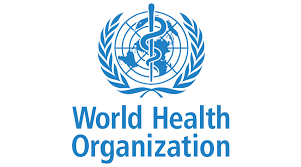
Experience: Above 10 Years
Apply By: 25-10-2022
OBJECTIVES OF THE PROGRAMME
Division mandateFor the Future: Towards the Healthiest andSafest Region outlines a vision for WHO work with MemberStates and partners in the Western Pacific. Strong, resilient,sustainable health systems are integral to delivering the four thematic priorities. Up to 60% of people living in some countries in the Region donot have access to safe, quality and affordable health services and medicines. One in five families spend 10% of their income on healthcare.
This threatens individuals, families, communities and economies. The Division of Health Systems and Services (DHS) will contribute to taking forward the For the Future vision and its four thematic priorities. DHS will support Member States with high quality advice and assistance on health financing, health workforce, medical products, quality andsafety, law and governance, women and children, rehabilitation, surgery and health services including primary health care so that they can build resilient,responsive and sustainable health systems.Unit mandates:In this role the incumbent will work across the different areas ofhealth systems and together with the following units at Regional Office level:HealthPolicy and Service Design (HPS)HPS supports Member States to develop and implement policies, strategies and plans andservice delivery design, including primary health care, to strengthen governance, financing, health workforce in order to ensure access to needed promotive, preventative, curative, rehabilitative and palliative services without financial hardship.
EssentialMedicines and Health Technologies (EMT)EMT supports Member States to strengthen pharmaceutical systems and regulations, including for traditional medicines to ensure equitable access to quality-assured, safe and effective therapies and health technologies and works along with other programmes to accelerate the fight against antimicrobial resistance in theWestern Pacific Region.MaternalChild Health and Quality Safety (MCQ)MCQ supports Member States to improve health systems to provide the best and safest possible health facility services to all people, regardless of race, beliefs, gender, economic and social condition and to ensure universal health coverage serves all people,starting from women and children. HealthLaw and Ethics (HLE)HLE supports Member States to understand,develop and implement quality and ethical legal frameworks for health. Grounded in human rights and international good practice standards, legal frameworks for health guide transformative policies and innovative programming
DESCRIPTION OF DUTIES
Under the guidance and supervision of the Director, Division of Health Systems and Services, the incumbent will perform the following duties:Coordinates the strategic planning and policy direction in the areas of essential medicines and health technologies in the Western Pacific Region, as part of the development of UHC in collaboration with Member States and development partners;
Develops,implements, monitors and evaluates the Region's programme on medical products and health technologies, including pharmaceuticals, biologicals, vaccines,blood products, diagnostics and medical devices and traditional medicine products by providing policy recommendations to the Regional Director onpriorities and ensuring close cooperation with other technical programmes witha one WHO vision;
Provides technical support and cooperation with national authorities for the development, implementation, monitoring, evaluation and revision of national medicines policies, as part of the health systems and for improving access to essential medicines guided by current global and regional strategies and action frameworks;Leads,collaborates and engages in capacity-building in improving regulatory capacity for all medical products and their quality assurance, including improving capacity for procurement and supply chain management and combating counterfeit and substandard medicines;
Leads work of regional network on accessto medicines under UHC and coordinate work of regional WHO collaborating centres;Leads, collaborates, and engages in improving rationaluse of medicines by providers and consumers as part of quality of care and coordinate and support efforts for optimizing use of antibiotics at regional level;
Leads cross-organization collaboration inintegrating essential medicines and health technologies and implementation of Global Action Plan and Regional Action Agenda on Antimicrobial Medicines across related programmess of work in the Organization;
Leads collaboration and implementation of the Regional Framework for Harnessing Traditional and Complementary Medicine for Achieving Health and Well-being in the Western Pacific;
Coordinates the technical and programmatic work with all levels of the Organization as the programme area lead forthe programme on access to medicines and other health technologies and antimicrobial resistance and strengthening regulatory capacity; andMobilizes resources, establishes partnerships and oversees programme implementation.
REQUIRED QUALIFICATIONS
Education
Experience
Skills
Functional skills and knowledge on the following:
Use of Language Skills